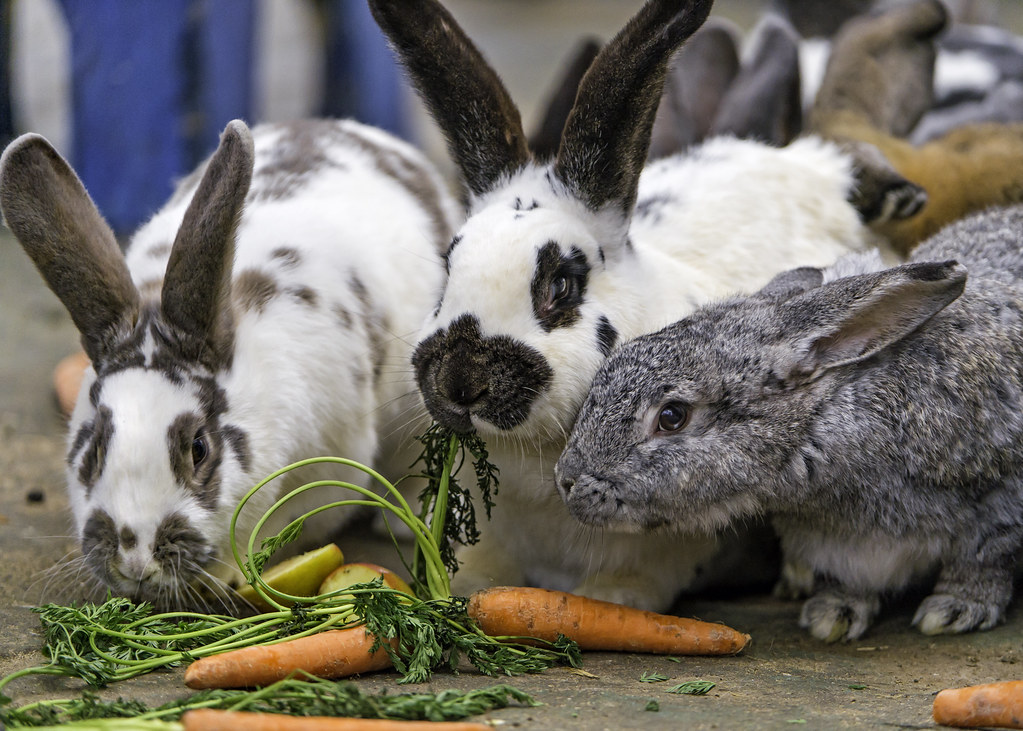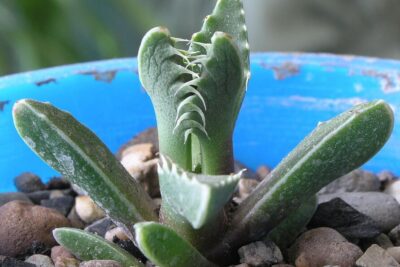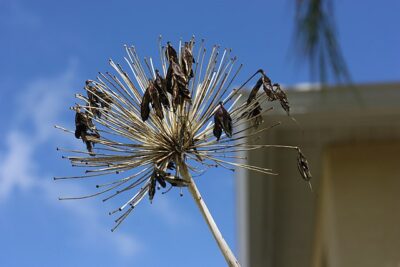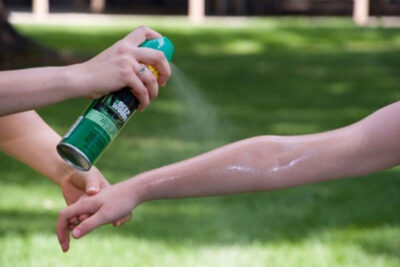
Protecting Your Garden: Understanding if Rabbits Will Eat Succulents

If you are a gardening enthusiast, you know the joy of tending to your plants and watching them thrive. However, there are always challenges that come with maintaining a garden, and one of them is dealing with pests. Rabbits, in particular, can be a nuisance as they have a tendency to nibble on plants, potentially causing damage to your beloved garden. If you have a collection of succulents, you may be wondering if rabbits will eat them and how to protect your plants from these furry intruders.
We will delve into the topic of rabbits and their appetite for succulents. We will discuss whether rabbits are likely to eat succulents and explore the reasons behind their behavior. Additionally, we will provide some practical tips and strategies to help you protect your succulents from rabbit damage. By the end of this article, you will have a better understanding of the relationship between rabbits and succulents, as well as the tools and techniques to safeguard your garden.
- Rabbits are unlikely to eat succulents because they prefer leafy greens and tender shoots
- Planting rabbit-resistant plants around your succulents can help deter them from eating your garden
- Creating barriers, such as fencing or netting, can physically prevent rabbits from accessing your succulents
- Applying repellents or strong-smelling substances, like garlic or predator urine, can discourage rabbits from approaching your garden
- Keeping your garden clean and free from debris can make it less attractive to rabbits
- Regularly inspecting your garden for rabbit activity can help you catch any potential damage early on
- Providing alternative food sources, like a designated rabbit-friendly area, can divert their attention away from your succulents
- Frequently Asked Questions
Rabbits are unlikely to eat succulents because they prefer leafy greens and tender shoots
While rabbits are notorious for their voracious appetites and ability to decimate gardens, succulents are generally safe from their nibbling jaws. Rabbits typically prefer leafy greens and tender shoots, making succulents a less appealing option for their palates.
Succulents, with their thick, fleshy leaves and stems, are filled with moisture and have a unique defense mechanism that makes them less desirable to rabbits. These plants have evolved to store water in their leaves, allowing them to survive in arid conditions. This high moisture content can make succulents less appealing to rabbits, as they have a preference for plants that are more succulent and juicy.
Furthermore, succulents often have a bitter or unpleasant taste that can act as a deterrent to rabbits. The presence of certain compounds, such as alkaloids or saponins, in succulents can make them less appetizing to these furry garden pests.
However, it's important to note that while rabbits are less likely to eat succulents, they may still nibble on them if other food sources are scarce. In times of extreme hunger or limited food availability, rabbits may resort to sampling plants they would typically avoid. Therefore, it's always wise to take precautions to protect your succulents from potential rabbit damage.
Protecting Your Succulents from Rabbits
If you live in an area with a high rabbit population or have experienced rabbit damage in your garden before, it's essential to take measures to safeguard your precious succulents. Here are some tips to protect your plants:
 Causes of Death Blooms in Succulent Plants: A Comprehensive Analysis
Causes of Death Blooms in Succulent Plants: A Comprehensive Analysis- Fencing: Install a barrier around your garden using chicken wire or hardware cloth. Make sure the fence is at least two feet high and buried a few inches underground to prevent rabbits from burrowing underneath.
- Repellents: Consider using rabbit repellents, such as sprays, pellets, or granules, that emit odors or tastes that rabbits find unpleasant. Apply these deterrents according to the manufacturer's instructions.
- Companion plantings: Surround your succulents with plants that rabbits dislike, such as lavender, marigolds, or thorny bushes like roses. This can create a barrier and make your succulents less accessible to rabbits.
- Netting: Use netting or mesh to cover individual succulents or groupings of plants to physically prevent rabbits from reaching them.
- Repellent plants: Consider planting rabbit-resistant species alongside your succulents. Some examples include daffodils, foxgloves, or ornamental grasses, which rabbits typically find less appealing.
By implementing these protective measures, you can enjoy the beauty of your succulent garden without worrying about rabbit-induced damage. Remember to monitor your plants regularly and take immediate action if you notice any signs of rabbit activity or damage.
Planting rabbit-resistant plants around your succulents can help deter them from eating your garden
Succulents are a popular choice for many gardeners due to their low maintenance and unique appearance. However, one common concern among succulent enthusiasts is whether rabbits will eat these plants. Rabbits are known to be voracious eaters and can quickly decimate a garden if not properly deterred.
While rabbits may occasionally nibble on succulents, there are several steps you can take to protect your garden and keep these furry pests at bay. One effective method is to plant rabbit-resistant plants around your succulents.
Choosing rabbit-resistant plants
When selecting plants to surround your succulents, it's important to choose varieties that rabbits are less likely to eat. Some common rabbit-resistant plants include:
- Lavender: Rabbits dislike the strong scent of lavender, making it an excellent choice for deterring them.
- Rosemary: This fragrant herb is not only a great addition to your culinary endeavors but also acts as a natural rabbit repellent.
- Marigolds: These vibrant flowers not only add a pop of color to your garden but also have a strong odor that rabbits find unpleasant.
- Salvia: With its vibrant blooms and strong scent, salvia is an excellent choice for keeping rabbits away.
By strategically planting these rabbit-resistant plants around your succulents, you create a barrier that deters rabbits from venturing too close to your precious plants.
Additional measures to protect your garden
In addition to planting rabbit-resistant plants, there are other steps you can take to safeguard your garden from these furry invaders:
 Using Neem Oil for Pest Control on Succulents: A Natural Solution
Using Neem Oil for Pest Control on Succulents: A Natural Solution- Use fencing: Installing a fence around your garden can help keep rabbits out. Make sure the fence is buried at least six inches underground to prevent them from burrowing under it.
- Apply repellents: There are various commercial repellents available that can be sprayed on your plants to deter rabbits. These repellents usually have a strong scent or taste that rabbits find unappetizing.
- Remove hiding spots: Rabbits are attracted to areas where they can hide, such as tall grass or piles of debris. Clearing these hiding spots can make your garden less appealing to them.
- Scare tactics: Implementing scare tactics, such as motion-activated sprinklers or garden ornaments that resemble predators, can startle rabbits and discourage them from entering your garden.
Remember, it's important to regularly inspect your garden and take immediate action if you notice any signs of rabbit damage. By combining these preventive measures, you can enjoy your succulents without the worry of rabbits feasting on them.
Creating barriers, such as fencing or netting, can physically prevent rabbits from accessing your succulents
Rabbits can be notorious for feasting on various plants, including succulents. If you have a garden filled with beautiful succulents, it's important to take measures to protect them from these furry intruders. One effective way to keep rabbits away from your succulents is by creating barriers, such as fencing or netting.
Fencing is a popular method for keeping rabbits out of gardens. You can choose from various types of fencing materials, such as chicken wire or hardware cloth, and create a barrier around your succulents. Make sure the fence is buried at least 6 inches into the ground to prevent rabbits from burrowing underneath it.
Another option is using netting to cover your succulents. This can be particularly useful if you have potted succulents or smaller areas to protect. Simply drape the netting over your plants and secure it with garden stakes or rocks to keep rabbits from nibbling on your precious succulents.
When using barriers, it's important to ensure that they are properly installed and securely fastened. Rabbits are agile creatures and can find their way through even the smallest gaps or loose sections. Regularly inspect your barriers and make any necessary repairs to maintain their effectiveness.
Tip: If you opt for fencing, consider adding a gate or removable section to allow easy access for tending to your succulents or harvesting their leaves for propagation.
 Identifying Scale Infestation on Succulents: A Guide for Plant Lovers
Identifying Scale Infestation on Succulents: A Guide for Plant LoversApplying repellents or strong-smelling substances, like garlic or predator urine, can discourage rabbits from approaching your garden
One common concern for gardeners is the threat of rabbits devouring their precious succulents. These adorable but voracious creatures can quickly decimate a garden if left unchecked. Fortunately, there are several methods you can employ to protect your garden and keep rabbits at bay.
One effective approach is to apply repellents or strong-smelling substances that rabbits find unappealing. Garlic, for example, has a pungent odor that rabbits tend to avoid. You can crush garlic cloves and scatter them around your garden or create a garlic spray by blending cloves with water and spraying it on your plants.
Predator urine is another option that can deter rabbits. This may sound unappealing, but it mimics the presence of a predator, which rabbits instinctively fear. You can find predator urine products specifically designed to repel rabbits at many garden centers and online retailers.
When using repellents, it's important to follow the instructions carefully and reapply them as recommended. Remember that rabbits may become accustomed to certain scents over time, so it's a good idea to rotate different repellents periodically to maintain their effectiveness.
It's worth noting that while repellents can be effective, they are not foolproof. Some rabbits may still be undeterred by strong scents, especially if they are particularly hungry or if there are limited food sources available. Therefore, it's important to consider additional measures to protect your succulents.
Keeping your garden clean and free from debris can make it less attractive to rabbits
When it comes to protecting your garden, understanding the feeding habits of different animals is essential. One common garden intruder that can wreak havoc on your plants is the rabbit. While rabbits typically prefer leafy greens and tender shoots, many gardeners wonder if succulents are safe from their nibbling jaws.
 The Causes of Succulent Leaf Loss Upon Touch: A Comprehensive Guide
The Causes of Succulent Leaf Loss Upon Touch: A Comprehensive GuideDo rabbits eat succulents?
The good news is that rabbits generally tend to avoid feeding on succulents. Succulents have thick, fleshy leaves that contain a high water content, making them less appealing to rabbits compared to other plants. Rabbits typically prefer softer, more succulent foliage that provides a higher nutrition value.
However, it's important to note that there are exceptions to this rule. In times of scarcity or when other food sources are limited, rabbits may resort to eating succulents as a last resort. Additionally, baby rabbits, known as kits, may be more prone to sampling a variety of plants, including succulents.
Protecting your succulents from rabbits
While the risk of rabbits devouring your succulents is relatively low, it's still wise to take preventive measures to ensure the safety of your plants. Here are a few strategies you can employ:
- Fencing: Installing a physical barrier such as chicken wire or hardware cloth around your garden can effectively keep rabbits out. Ensure that the fence is buried at least six inches into the ground to prevent rabbits from burrowing underneath.
- Repellents: Using natural repellents like garlic or chili pepper sprays can deter rabbits from approaching your succulents. Apply these repellents to the foliage and reapply after rainfall.
- Companion planting: Planting rabbit-resistant plants alongside your succulents can help in deterring rabbits. Some examples include lavender, marigolds, and thyme.
By implementing these protective measures, you can significantly reduce the chances of rabbits feasting on your beloved succulents. However, it's always a good idea to remain vigilant and regularly inspect your garden for any signs of rabbit activity.
Regularly inspecting your garden for rabbit activity can help you catch any potential damage early on
As a succulent enthusiast, it is essential to protect your precious plants from potential threats. One common concern for gardeners is the possibility of rabbits feasting on their beloved succulents. Rabbits are notorious for their voracious appetites and ability to decimate gardens in no time. However, understanding if rabbits will eat succulents is crucial in order to take effective preventive measures.
Identifying Rabbit Activity
 Are Succulent Plants Safe for Cats to Nibble On?
Are Succulent Plants Safe for Cats to Nibble On?Regularly inspecting your garden for rabbit activity can help you catch any potential damage early on. Look for signs such as chewed leaves, gnawed stems, or excavated burrows in the soil. Rabbits tend to leave distinct bite marks, often at an angle, which can help you differentiate their presence from other garden pests.
Types of Succulents Rabbits Prefer
While rabbits are known for their indiscriminate appetites, they do have some preferences when it comes to succulents. Generally, rabbits are more likely to target soft-leaved succulents that have a high moisture content. Varieties such as Sedum, Crassula, and Echeveria are commonly on their menu. However, this does not mean that all succulents are safe from rabbits, as they may still nibble on other types if they are particularly hungry.
Preventive Measures
Protecting your succulents from rabbits requires a proactive approach. Here are some effective preventive measures you can take:
- Fencing: Install a rabbit-proof fence around your garden to keep these critters out. The fence should be at least 2 feet high and buried at least 6 inches deep into the ground to prevent burrowing.
- Repellents: Apply natural rabbit repellents, such as garlic or hot pepper spray, around your succulents to deter them from approaching.
- Companion Planting: Introduce plants that rabbits dislike, such as lavender or marigolds, near your succulents to create a natural barrier.
- Netting: Cover your succulents with mesh netting to physically prevent rabbits from accessing them.
- Elevate Containers: If you grow succulents in containers, elevate them on raised platforms or hang them to discourage rabbits from reaching them.
Conclusion
While rabbits have a preference for certain types of succulents, it is essential to take preventive measures to protect your garden as a whole. Regularly inspecting for rabbit activity, identifying their favorite plant varieties, and implementing effective preventive measures can help you keep your succulents safe and thriving. With proper precautions in place, you can enjoy the beauty of your succulent garden without worrying about hungry rabbits.
 Causes of White Film on Succulent Leaves: A Comprehensive Guide
Causes of White Film on Succulent Leaves: A Comprehensive GuideProviding alternative food sources, like a designated rabbit-friendly area, can divert their attention away from your succulents
When it comes to protecting your garden from rabbits, understanding their dietary preferences is crucial. While rabbits are known to be voracious eaters, their taste for succulents can vary. Some succulents have natural defense mechanisms, such as thorns or bitter-tasting leaves, which make them less appealing to rabbits. However, other succulents may be more susceptible to rabbit damage.
To protect your succulents from rabbit nibbling, one effective strategy is to provide alternative food sources. Creating a designated rabbit-friendly area in your garden can divert their attention away from your prized succulents. This can be achieved by planting rabbit-friendly plants, such as clover or dandelions, in a separate section of your garden. By offering these delicious alternatives, you can satisfy the rabbits' appetite and minimize the risk to your succulents.
Additionally, consider using physical barriers to keep rabbits out of your succulent beds. This can be achieved by installing a fence around the garden area or using wire mesh to enclose individual plants. Make sure the barriers are tall enough to prevent rabbits from jumping over or digging underneath. Regularly inspect the barriers to ensure there are no gaps or openings that rabbits can exploit.
Note: It's important to remember that rabbits are persistent creatures, so combining multiple protection methods is often the most effective approach. While providing alternative food sources and using physical barriers can significantly reduce the risk of rabbit damage, regular monitoring and maintenance are still necessary to keep your succulents safe.
Frequently Asked Questions
1. Will rabbits eat succulents?
Yes, rabbits are known to eat succulents, especially if they are hungry or if there is a limited food source available.
 Uncovering Common Causes of White Spots on Succulents
Uncovering Common Causes of White Spots on Succulents2. How can I protect my succulents from rabbits?
You can protect your succulents from rabbits by using physical barriers such as fences or mesh, applying repellents, or planting rabbit-resistant plants nearby.
3. Are all succulents equally attractive to rabbits?
No, rabbits have preferences and some succulents may be more appealing to them than others. However, it's always a good idea to take precautions to protect all succulents from potential rabbit damage.
4. What are some rabbit-resistant succulents?
Some rabbit-resistant succulents include agave, aloe, sedum, and echeveria. However, it's important to note that no plant is completely rabbit-proof, so it's still best to take preventive measures.
 Is the Firestick Succulent Toxic to Pets and Humans?
Is the Firestick Succulent Toxic to Pets and Humans?If you want to read more articles similar to Protecting Your Garden: Understanding if Rabbits Will Eat Succulents, you can visit the Pests and Diseases category.






You Must Read